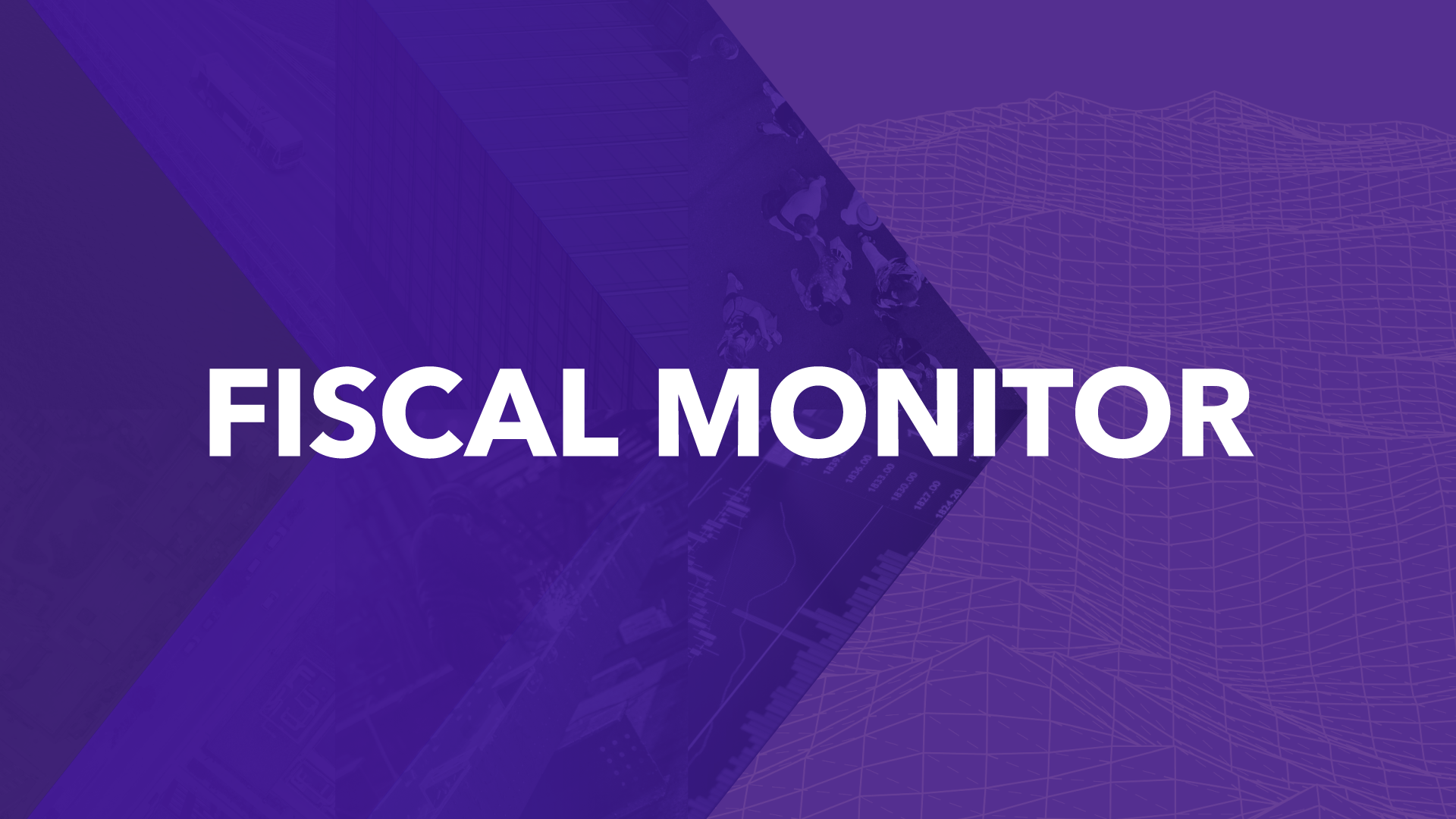Fiscal Policies

Overview
Fiscal policy affects macroeconomic stability, growth, and income distribution. Citizens expect their governments to ensure value-for-money for public spending, a fair and efficient tax system, and transparent and accountable management of public sector resources.
The IMF has been a leading source of fiscal policy and management expertise worldwide. The IMF monitors and analyzes global fiscal trends and advises IMF member countries on fiscal issues directly. This page highlights the main fiscal policy issues currently under discussion, as well as provides links to research, publications, and commentary.
Fiscal Monitor October 2025: Spending Smarter: How Efficient and Well-Allocated Public Spending Can Boost Economic Growth
Chapter 1 of the Fiscal Monitor Chapter 1 explores how governments can improve economic growth prospects by enhancing the efficiency and composition of public spending, while keeping the overall spending envelope unchanged.
Spending Smarter to Boost Growth
Spending more efficiently and reallocating public funds toward investment and innovation can be a powerful growth strategy
Fiscal Rules Foster Stability as Spending Pressures Grow
Prudent anchors, corrective mechanisms, and supportive institutions can help countries comply with their fiscal rules and commit to sound public finances
Global Debt Remains Above 235% of World GDP
Decline in private lending offsets increase in public borrowing; notable differences persist across countries and income groups.
Disclosing Public Debt Boosts Investor Confidence, Cuts Borrowing Costs
Greater debt transparency builds investor confidence, helps reduce borrowing costs, and strengthens debt sustainability—reducing the risk of shocks that can lead to a debt crisis
Debt is Higher and Rising Faster in 80 Percent of Global Economy
Fiscal Policy under mounting uncertainty means government budgets need resilience—particularly in countries whose economic weight makes them influence global trends
Asia Can Boost Economic Resilience Amid Surging Trade Tensions
Stronger regional economic ties can help build resilience during a time of growing policy uncertainty
A Guide and Tool for Projecting Public Gross Financing Needs
Broadening the Gains from Generative AI: The Role of Fiscal Policies
IMF Engagement on Health Spending Issues in Surveillance and Program Work
Transforming Public Finance Through GovTech
How to Combat Value-Added Tax Refund Fraud
The Political Economy of GovTech
Understanding the Macroeconomic Effects of Natural Disasters
Strengthening Fiscal Frameworks in the Presence of Rising Risk of Natural Disasters
Shocks and Shields: Macroeconomic Institutions During Commodity Price Swings
The Urgency of Conflict Prevention – A Macroeconomic Perspective
The Urgency of Conflict Prevention – A Macroeconomic Perspective
Bosnia and Herzegovina: Technical Assistance to Develop a Macroeconomic Framework at the Central Bank
Mongolia: Ministry of Finance Macroeconomic Framework Technical Assistance: Scoping Mission Report
Panama: Fiscal Transparency Evaluation
Angola: Strengthening the Forecasting and Policy Analysis System on the Transition to Inflation Targeting
Colombia: Autonomous Committee for the Fiscal Rule Macroeconomic Framework Technical Assistance: Scoping Mission Report
Mauritania: Technical Assistance Project on Public Debt Projections and Analysis: Scoping Mission
A Guide and Tool for Projecting Public Gross Financing Needs
Broadening the Gains from Generative AI: The Role of Fiscal Policies
IMF Engagement on Health Spending Issues in Surveillance and Program Work
Transforming Public Finance Through GovTech
How to Combat Value-Added Tax Refund Fraud
The Political Economy of GovTech
Understanding the Macroeconomic Effects of Natural Disasters
Strengthening Fiscal Frameworks in the Presence of Rising Risk of Natural Disasters
Shocks and Shields: Macroeconomic Institutions During Commodity Price Swings
The Urgency of Conflict Prevention – A Macroeconomic Perspective
The Urgency of Conflict Prevention – A Macroeconomic Perspective
Bosnia and Herzegovina: Technical Assistance to Develop a Macroeconomic Framework at the Central Bank
Mongolia: Ministry of Finance Macroeconomic Framework Technical Assistance: Scoping Mission Report
Panama: Fiscal Transparency Evaluation
Angola: Strengthening the Forecasting and Policy Analysis System on the Transition to Inflation Targeting
Colombia: Autonomous Committee for the Fiscal Rule Macroeconomic Framework Technical Assistance: Scoping Mission Report
Mauritania: Technical Assistance Project on Public Debt Projections and Analysis: Scoping Mission
Fiscal Issues
Fiscal Datasets
Fiscal Monitor Database of Country Fiscal Measures in Response to the COVID-19 Pandemic
Global Debt Database
Fiscal Decentralization Database
International Survey on Revenue Administrations
Fiscal Monitor Database
Fiscal Crises Database
Public Finances in Modern History Database
How to Cut Methane Emissions
Session 1: Fiscal and Financial Challenges
Emine Boz chaired the fiscal and financial session. Mark Aguiar presented on debt and growth in low-income countries, with comments from Alessandro Dovis. Sushanta Mallick spoke on shifting financial flows, with discussion led by Anusha Chari.
Press Briefing: Fiscal Monitor, October 2025
This Fiscal Monitor explores how governments can improve economic growth prospects by enhancing the efficiency and composition of public spending.
Building Resilience in a Natural Disaster-Prone World
Building resilience requires early action, sound data, and strong institutions. Explore how countries and partners across regions are leveraging IMF support and fiscal tools to manage disaster risks and foster sustainable growth.
Making Progress on Pension Reform
Population aging is putting pressure on the fiscal sustainability of pension systems. Timely reforms—such as raising retirement ages and redesigning benefits—can help stabilize public finances and expand coverage.
Annual Legal Conference 2025: Legal Foundations of Public Debt Transparency
The IMF’s Legal Department hosted the conference ‘Public Debt Transparency: Aligning the Law with Good Practice’ on May 14. The event addressed the pressing issue of opaque debt, highlighting the role of domestic law in enabling debt transparency.
Press Briefing: Fiscal Monitor, April 2025
Escalating uncertainty and policy shifts are reshaping the fiscal outlook. Global public debt projections have been revised upwards, while tariffs, uncertainty and market volatility, increased defense spending, and challenging foreign aid are intensifying risks.


















